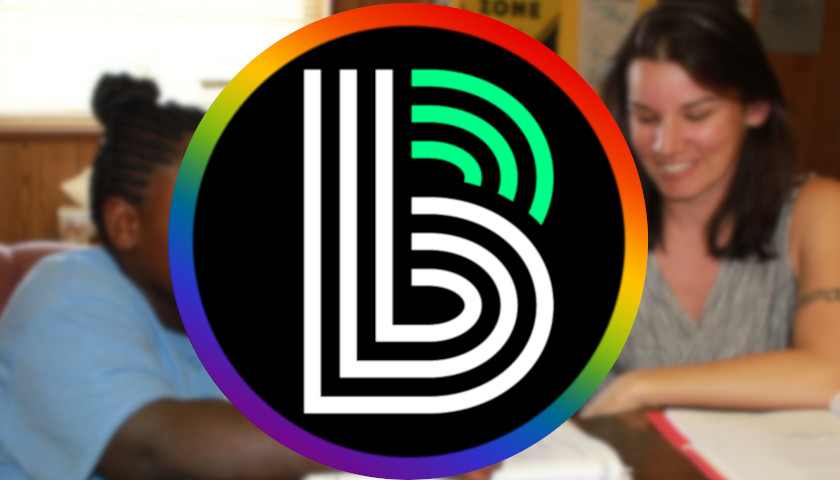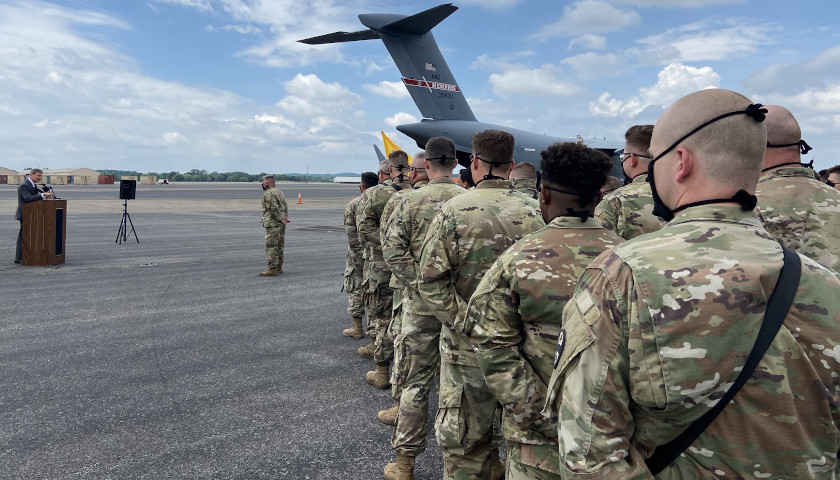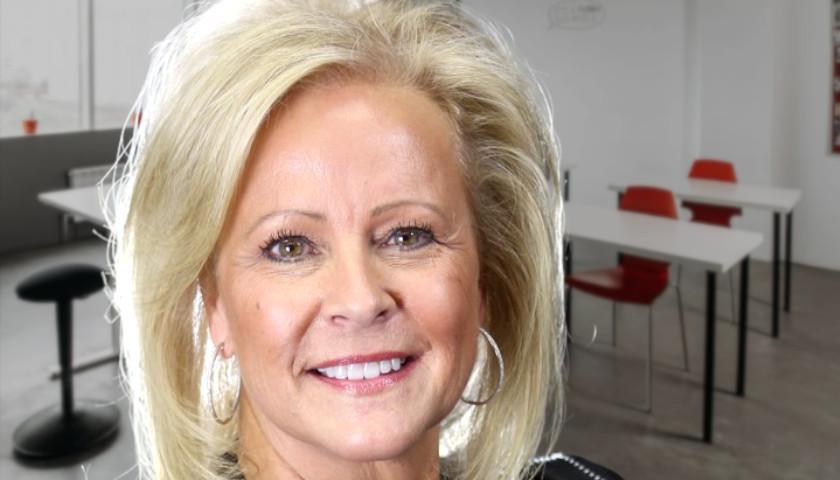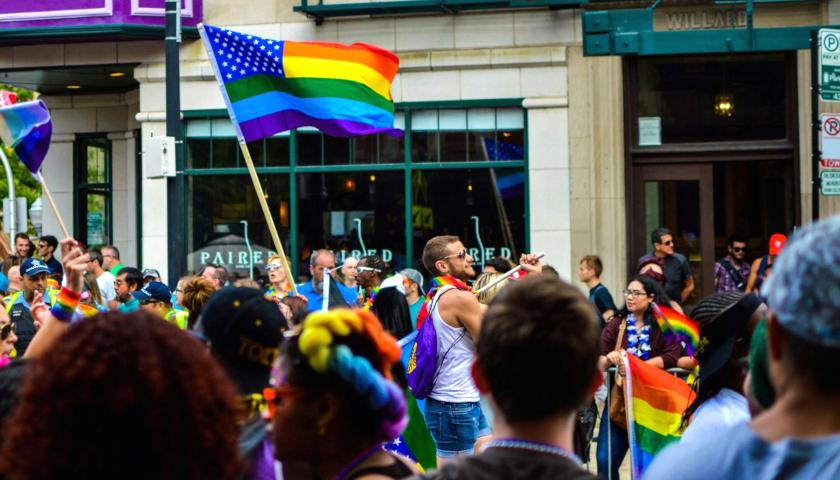A new marketing campaign by Big Brothers Big Sisters of Middle Tennessee (BBBSMT) is actively targeting members of the LGBTQ community for its recruiting efforts of mentors for young people.
The Facebook page of BBBSMT got a new look on June 7, when the organization updated their profile picture and cover photo to the one shown above. The new look includes a prominent display of the LGBTQ symbolic rainbow in their logo and with apparent representative members of the community literally wrapped in rainbow flags in their cover photo.
 Later that week, The Tennessee Star received a series of four audio scripts for a radio-type advertisement, titled “Words can hurt,” “School is hard,” “I feel both,” and “When I grow up.”
Later that week, The Tennessee Star received a series of four audio scripts for a radio-type advertisement, titled “Words can hurt,” “School is hard,” “I feel both,” and “When I grow up.”
All four scripts follow the same format of an introduction offering an adult narrator’s brief explanation of a scenario faced by a young person. A back and forth dialogue ensues between the adult and a young person, and the script closes with a statement that this is a dramatization of the stories they hear at Big Brothers Big Sisters of Middle Tennessee.
The closing wraps up with a direct appeal to members of the LGBTQ community, “Your life experiences can make a lifetime of difference for children like (name of young person featured in the dialogue inserted here). You are the example we’re looking for. Donate your time by signing up to become a mentor.”
The “Words can hurt” version relays a young person named Marco who is the “new kid” in school who had a “scary” first day at school coming to Tennessee from Texas when “one kid told me to go back to my country.” It is later mentioned by Marco that kids say mean things to him about his parents.
When the adult ask Marco if he would like someone to talk to, even if they are “different” or “gay,” Marco responds, “I don’t care. I’m different.”
The “I feel both” script sets the stage in the introduction that “figuring out what gender to be is even more challenging,” than the complexity of figuring out what to be when growing up. Fourteen-year old Valentin tells of the struggle as a child playing with dolls and cars, putting on lipstick while wearing dad’s tie and being called a weirdo by her sister.
Valentin’s mom apparently doesn’t understand, telling Marco it’s “a phase,” and the school therapist isn’t a friend.
The adult proposes having a mentor that went through the same path as Valentin. Valentin responds that if that’s possible, “Wow, that sounds good. Very good.”
Rich is 12 in “When I grow up,” and doesn’t see the career of his dreams as a ballet dancer, because he doesn’t fit the standards that he and his family see on TV. Rich’s mom wants him to be happy, “even if dad doesn’t agree.”
When offered, mom thinks it would be great for Rich to have a mentor from the LGBTQ+ community to be able to guide him.
According to the information provided to The Star along with the scripts, the audio recordings recruiting LGBTQ community members as mentors are going to be available for listening through headphones at an upcoming event and later on Instagram. The details of the event where the audio recordings would be played were not specified.
Participating in the audio recording of the scripts carried a pay rate of “$325 flat for the recording,” up to a half day. The recording was scheduled to be conducted at Blackbird Studio on Azalea Place in Nashville.
Most of BBBSMT’s Facebook posts since the recent re-branding have focused on the LGBTQ community.
One post on June 10 accompanied a group selfie of seven individuals, six of whom were women and at least four of them wearing employee-type badges hanging off lanyards emblazoned with the Big Brothers Big Sisters of Middle Tennessee logo.
The verbiage of the post, apparently following a staff training session on the familiar cultural theme of toxic masculinity stated, “Ideas about what makes a ‘real man’ are a major contributor to violence against LGBTQ youth. Our staff learned so much about how to support boys at today’s ‘toxic masculinity’ lunch-and-learn hosted by ACE Nashville: Building Healthy Communities. We’re proud to connect ALL boys with supportive adults who give them room to be themselves! #ACENashville #Pride #NashvillePride”
According to the ACE Nashville: Building Healthy Communities “About” section on the Facebook page of the host of the lunch-and-learn session, the organization was established to “prevent and mitigate the lifelong impact of Childhood Adversity in Nashville thorough awareness and collaboration.”
According to a recent report from the hardly conservative Daily Mail, LGBTQ+ Americans make up 4.5 percent of the population, with the majority of them living in coastal states. The five-year survey indicates that the proportion of the population identifying as LGBTQ+ in Tennessee at 3.5 percent is significantly less than the national average.
Other than promoting the October 25th Franklin Wine Festival, a fundraiser that benefits BBBSMT, it is unclear from their Facebook page what the organization is doing to recruit mentors for young people from the remaining 96.5 percent of Tennessee’s non-LGBTQ+ population.
At the time of this report, it appears that other Big Brothers Big Sisters organizations in Tennessee, including that of East Tennessee, Clarksville and Chattanooga have not yet begun their rebranding and recruiting efforts to the LGBTQ community.
The scripts for Big Brothers Big Sisters of Middle Tennessee’s four audio recordings recruiting members of the LGBTQ+ community can be read here.
—
Laura Baigert is a senior reporter at The Tennessee Star.
Photo “Big Brothers Big Sisters of Middle Tennessee Logo” by Big Brothers Big Sisters of Middle Tennessee. Background Photo “Kid being Mentored” by Katherine Mapp.









It seems that serving youth who need mentors is secondary to supporting the LGBTQ community. There are other organizations that are more focused on helping young people.
I guess the days of take them out for a burger and bowling, call on a consistent basis and just listen are done. They don’t seem to care about the 97% who struggle daily among poverty and chaos and lack of parental guidance.